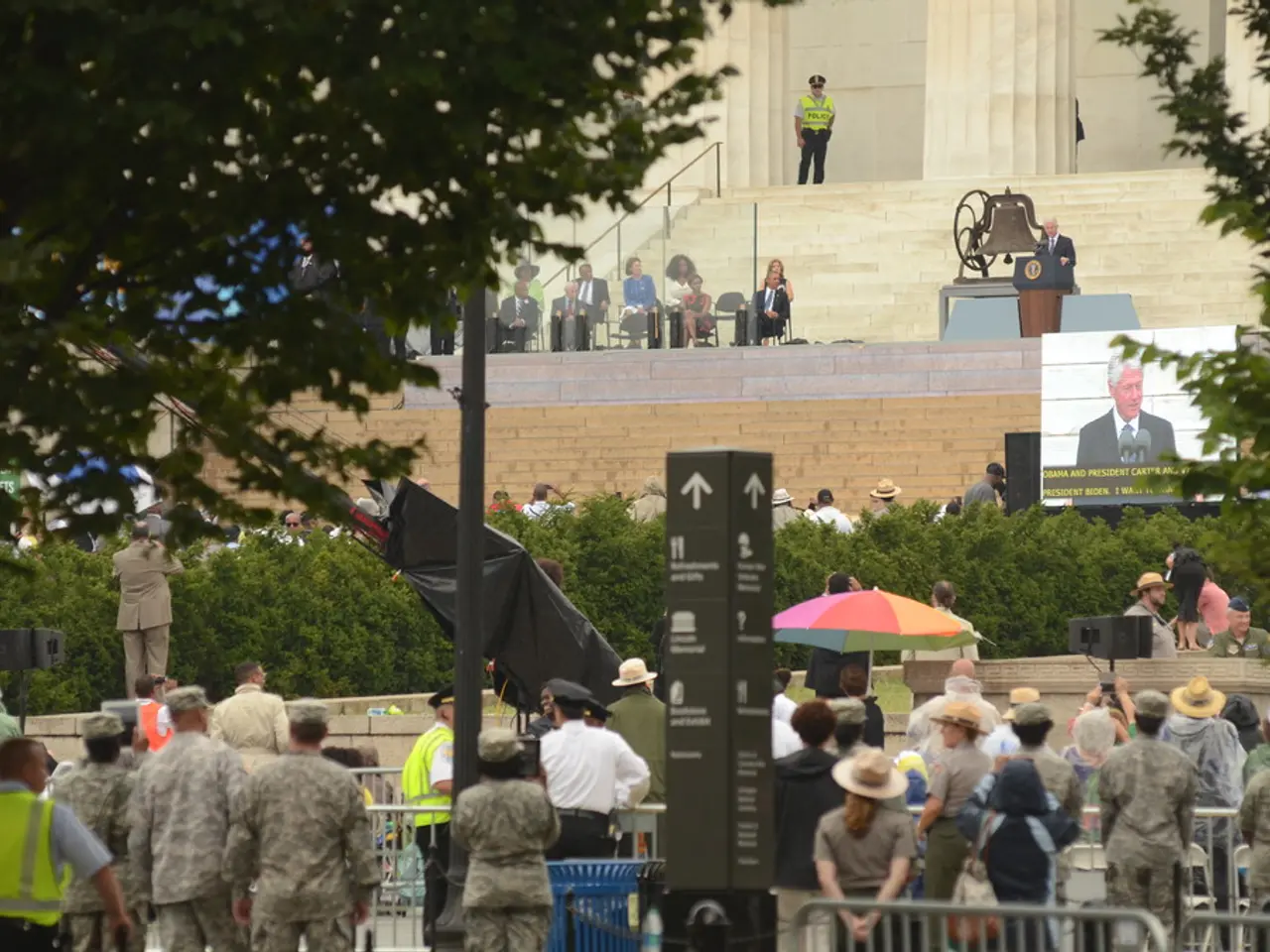Trump's Taiwan dilemma: China calls for clarity concerning potential China summit, according to an expert
In the realm of international politics, the U.S. stance on Taiwan independence has been a subject of ongoing debate. Recent developments have shed light on subtle shifts in the U.S. approach, most notably in February 2025 when the U.S. State Department updated its official website, removing a sentence that stated the country does not support Taiwan independence. This change, while seen as a signal of support for Taiwan, does not mark a departure from the long-held One China policy, a position the U.S. has maintained since 1979.
This policy adjustment is part of a broader strategic approach by the U.S. to deter Chinese aggression while maintaining diplomatic ambiguity. However, this shift has escalated tensions with China, as Beijing views any perceived support for Taiwan independence as a challenge to its sovereignty claims.
The U.S. has traditionally employed a strategy of "strategic ambiguity" to deter Taiwan from declaring independence and China from invading Taiwan. However, some argue that this policy needs an upgrade to include "tactical clarity" to make U.S. commitments more transparent and credible, especially as China's military capabilities grow.
In terms of practical measures, the U.S. continues to invest in military and diplomatic efforts to support Taiwan. This includes defense assistance, acknowledging U.S. military presence in Taiwan, and the commitment to supply Taiwan with necessary weapons, as outlined by the Taiwan Relations Act.
Taiwan's strategic importance to the U.S. is underscored by its economic role and geographic position. Despite some doubts due to comments by U.S. officials about Taiwan's defense spending and economic competition, key figures in Taiwan remain confident in U.S. support.
Recent challenges in Taiwan's political landscape, such as internal crises within the Democratic Progressive Party, could impact Taiwan's ability to respond effectively to China's military and political pressures. Despite these challenges, the U.S. continues to view Taiwan as a critical partner in regional security.
China's military exercises, such as the "Strait-Thunder 2025A," have heightened tensions across the Taiwan Strait. These activities are seen as part of China's strategy to apply pressure on Taiwan and test the U.S. response.
In an effort to pave the way for a summit between the U.S. and China, a meeting between their national security teams is suggested. Wu Xinbo, dean of the Institute of International Studies at Fudan University in Shanghai, has urged Donald Trump to state that the U.S. does not support Taiwan independence while in China and suggested that national security teams from Washington and Beijing should meet face-to-face.
It is important to note that Beijing does not recognize Taiwan's independence and views Taiwan as part of China, prepared to reunify it by force if necessary. Most countries, including the United States, do not recognize Taiwan as an independent state.
This complex web of relations underscores the delicate balance that the U.S. must navigate in its approach to Taiwan, aiming to support Taiwan without explicitly endorsing independence and managing tensions with China while maintaining regional security.
- The recent update in the U.S. State Department's policy-and-legislation regarding Taiwan's independence is part of a broader strategy in general-news, aimed at deterring Chinese aggression while maintaining diplomatic ambiguity.
- The ongoing debate about the U.S. stance on Taiwan independence is rooted in politics, with some advocating for a shift towards "tactical clarity" to make commitments more transparent, particularly as China's military capabilities grow.








